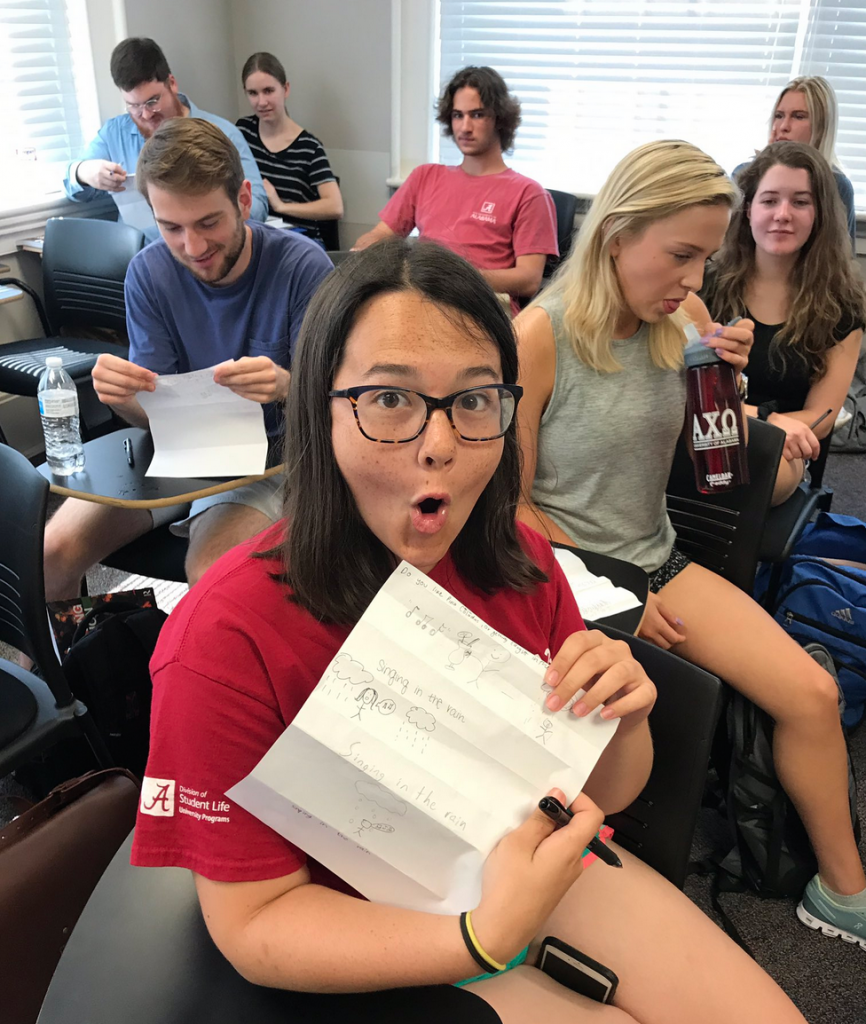 Kathryn D. Blanchard is the Charles A. Dana Professor of Religious Studies at Alma College, where she has taught undergraduates since 2006.
Kathryn D. Blanchard is the Charles A. Dana Professor of Religious Studies at Alma College, where she has taught undergraduates since 2006.
I’ll start by making a long story short: the Religious Studies department at my institution has been shrinking for years, and this year the major was cut. The minor survives, for now (we got off lucky compared to French, German, and Anthropology), mostly because I—the lone faculty member—have tenure, our classes are generally full, and the college has a Presbyterian affiliation.
When other schools cut or threaten to cut religious studies, I pay attention to how folks defend it. Most defenses revolve around a few themes: religious studies prepares people for successful careers; it prepares people for responsible citizenship; and it is central to the liberal arts and the purposes of higher education, so no self-respecting institution should be without it—especially because it is so popular/relevant/cheap. Some of these arguments can be applied to the humanities more broadly, while others carve out a special place for religion. This very thorough recent statement from the American Academy of Religion covers all the bases, as does a fine blog post on this site by a current master’s student. Perhaps my favorite is from Megan Goodwin, who writes so eloquently, “Humanities cutbacks make us dumber, crueler, and less likely to survive as a species.”
But however brilliant and persuasive I (the proverbial choir) find these and other defenses, they leave me somewhat cold, simply because they are defenses. In defending ourselves we have already lost, because we necessarily do so on someone else’s terms. Ultimately none of these arguments gets at the real reason I, personally, chose to study religion back in late adolescence and then again in my 20s and 30s: love. It’s as basic as that. I loved thinking critically about and reading about and talking about religion, I wanted to keep doing it, and higher ed is where I could do it.
As readers here probably know, people who love thinking, reading, and talking about religion are often weirdos. We are people who run toward a topic that many folks run away from, especially if they aren’t true believers of some kind. I was a weird teenager and a weird young adult, and studying religion appealed to my particular weirdness. Studying religion saved me, quite literally, from a world in which humans were organized between those bound for hell and those going to heaven. It saved me (is still saving me) from white-Christian-American ethnocentrism. And it saved me from having to build a career on spreadsheets, health care, or anything where the main benefit is to make money. I’m not saying only religious studies could have done this; it could also have been literature, history, or psychology. But the fact is I fell in love with the study of religion in college. It grabbed me, and I grabbed back.
So there’s the problem. No one wants to hear, “Keep the religious studies major because a few of us love it and it makes our hearts sing.” Religion is already tangled up with love and other sentimentalities in most people’s imaginations; they see it as private, a hobby, ill-suited for practical things like work, politics, or education. So for a religion professor to bring up love is self-defeating in a way it might not be for a chemist, graphic artist, or data analyst, whose loves are more widely shared and understood. Religious studies is not alone in this predicament, of course; there are lots of other things that most 21st-century folks just don’t get—dance, art, languages, classical music, even higher education itself. Those who love and want these to flourish must find reasons to persuade those who hold the purse strings: enrollment and retention; career readiness; diversity training; ethical leadership; democracy.
Some of us will succeed, others will fail. Some of us will have our hearts broken. But it won’t change the fact that we’ve had a good run, and it was fun as hell while it lasted. However un-scholarly it sounds, “’Tis better to have loved and lost than never to have loved at all.”
Photo from Prof. Emily Crews’s REL 105 Honors Introduction
to the Study of Religion, Fall 2019.